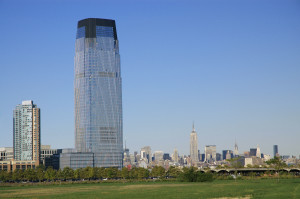Jersey City recently expanded its Paid Sick Time Ordinance. The most significant change — the law now applies to businesses with less than ten employees.
In 2013, Jersey City became the first city in New Jersey to require private employers to provide paid sick leave to workers. Since then, nine other municipalities have followed suit. Most recently, Elizabeth enacted its own paid sick leave ordinance. 
In its latest ordinance (Ord. 15.145), Jersey City acknowledges that some of the municipalities that followed its lead have adopted ordinances that provide more generous sick leave benefits than the City’s existing Paid Sick Time Ordinance. The recent changes are designed to bring the City’s benefits in line with these more generous benefits and accordingly foster greater consistency among those New Jersey municipalities with paid sick leave ordinances. The amended ordinance also states that Jersey City is seeking to “clarify and supplement some of the language contained in its Paid Sick Time Ordinance so as to make it clearer to prospective employers and employees how the policy applies.”
Below are several key changes:
- Employees who work for businesses who employ less than ten (10) employees will accrue compensated sick time up to a maximum of 24 hours per year. In addition, once such individuals have accrued 24 hours of compensated sick time, they will accrue additional unpaid sick tune up to a maximum of 16 hours per year.
- The above requirements do not apply to child care workers, health care workers or foodservice workers. Employers are required to provide up to 40 hours of paid sick time, either paid or unpaid, so long as the hours are accrued in a calendar year.
- In determining the number of employees performing work for an employer, all employees performing work for compensation, whether on a full-time, part-time, or temporary basis must be counted. If the number of employees who work for an employer for compensation fluctuates, the number of employees is determined for the current calendar year based upon the average number of employees who worked for compensation during the preceding calendar year.
- The requirements of Jersey City’s Paid Sick Time Ordinance will not apply to employees covered by a collective bargaining agreement (CBA) to the extent that such requirements are expressly waived in the CBA in clear and unambiguous terms. With respect to employees covered by CBA in effect at the time of the effective date of the Ordinance, the law will not apply until the expiration of the agreement; however, if the terms of an expired collective bargaining agreement provide paid sick leave that is more generous than provided by the ordinance, those terms of the expired CBA will control.
- Finally, the amended Ordinance also increases the penalties for non-compliance. The maximum fine will jump from $1,250 to $2,000.
For more information about the amendments to Jersey City’s Sick Leave Ordinance or the legal issues involved, we encourage you to contact a member of Scarinci Hollenbeck’s Government Law Group.
